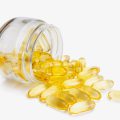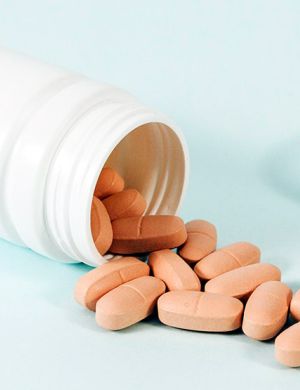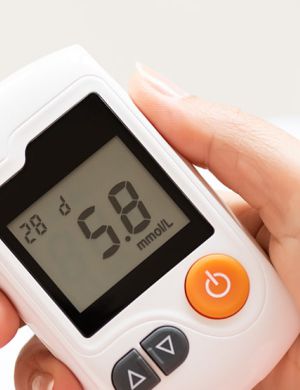
Consumer Health – USA, UK, Asia and ROW Regulatory News – Aug 2024
USA
FDA Starts Next Phase of Sodium Reduction Efforts
FDA took another important step in its sodium reduction efforts. The agency has issued new, voluntary targets for sodium reduction in foods in a draft guidance that serves as Phase II of the agency’s ongoing work. The new targets build on the final, voluntary sodium reduction goals issued in 2021, now referred to as Phase I, to further reduce diet-related diseases associated with consuming high levels of sodium.
FDA Issues Warning Letter to Manufacturer of Apple Cinnamon Fruit Puree Products Containing Elevated Levels of Lead and Chromium
The U.S. Food and Drug Administration issued a Warning Letter to AUSTROFOOD S.A.S. (Austrofood), the manufacturer of the apple cinnamon fruit puree pouches that were recalled last year and that were found to contain elevated levels of lead and chromium. The letter is part of the agency’s ongoing efforts to enhance the safety of cinnamon, ground spices, and other foods, particularly those consumed by babies and young children.
Canada
Ashwagandha Supreme: potential presence of undeclared dairy allergens
Affected lots may come into contact with dairy (milk), however they are incorrectly labelled as dairy-free.
Do not use this product if you have a dairy allergy. Consult a health care professional if you have used this product and have health concerns.
UK
Tesco recalls Tesco Plant Chef 2 Meat-Free Burgers with Melting Middle because of a potential burn risk from the melting middle
Tesco are taking the precautionary step of recalling Tesco Plant Chef 2 Meat-Free Burgers with Melting Middle because the centre of the burgers may maintain a high temperature once cooked. This may result in a burn risk to customers.
ASIA
India
FSSAI launches project to detect microplastics in food
The Food Safety and Standards Authority of India (FSSAI) on Sunday (August 18) launched a project against microplastic contamination in food. The project was started in March to develop and validate analytical methods to detect micro and nano-plastics in various food products and assess their prevalence and exposure levels in the country.
The project’s objectives include developing standard protocols for micro/nano-plastic analysis, conducting intra- and inter-laboratory comparisons, and generating critical data on microplastic exposure levels among consumers.
FSSAI emphasises need to prohibit use of pesticides to ensure food safety
The FSSAI’s CEO proposed that each state should “establish this inter-ministerial committee, which will focus on reducing pesticide use, implementing control measures, and developing strategies to monitor and regulate pesticide application at the farmer level”.
This initiative is aimed at ensuring agricultural practices remain safe and sustainable, thereby protecting consumers from potential health risks associated with pesticide residues in food, the regulator said.
Japan
Implementing inspection orders for imported foods
Chilean blueberries and their processed products
Today, we have decided to issue an inspection order to importers based on Article 26, Paragraph 3 of the Food Sanitation Act (requiring inspection of all lots for each import notification) as detailed below, and have notified the chiefs of each quarantine station. This is the first time that an inspection order for pesticide residues has been issued for blueberries produced in Chile.
| Target foods, etc. | Inspection items | background |
|---|---|---|
| Chilean blueberries and their processed products (simple processing only) | Tebuconazole | The inspection order was issued after monitoring tests at the quarantine station detected tebuconazole in blueberries from Chile |
Pesticides (fungicides)
The acceptable daily intake (the amount of intake per day that a person can take every day for their entire life without any adverse health effects) is 0.029 mg/kg of body weight per day, and the acute reference dose (the amount of intake that a person can take orally for 24 hours or less without any adverse health effects) is 0.3 mg/kg of body weight.
Although not realistic, even if a 60 kg person continued to consume 34.8 kg of blueberries containing 0.05 ppm tebuconazole every day, the average lifetime intake would not exceed the Tolerable Daily Intake, and even if the person consumed 360 kg in one day, the acute reference dose would not be exceeded and there would be no immediate adverse effects on health.
Results of the 2022 National Health and Nutrition Survey
The Ministry of Health, Labour and Welfare has compiled and is pleased to announce the results of the National Health and Nutrition Survey conducted in November and December of 2022.
This survey is conducted in accordance with Article 10 of the Health Promotion Act (Act No. 103 of 2002) and is conducted every year to clarify the physical condition, nutritional intake and lifestyle habits of the nation’s citizens and to obtain basic information for the comprehensive promotion of national health. The
2022 survey also investigated the situation regarding social environment and lifestyle habits, etc., and grasped the situation regarding household equivalent income and lifestyle habits, etc., as well as changes in lifestyle habits due to the impact of the spread of COVID-19.
Philippines
Training on the Food Product Registration Procedure and Other Authorization and Core Processes (TFPR-ACP)
A two-day training program for FDA Center for Food Regulation and Research stakeholders aims to provide detailed information on regulatory requirements and procedures for securing FDA-CFRR market authorizations (e.g., Certificate of Product Registration (CPR), Sales and Promo Permit, Import Permit).
This training will also cover an overview of the Food Safety Act of 2013, highlighting the roles and responsibilities of Food Business Operators, specific Post-marketing Surveillance activities being conducted by the FDA-CFRR, and the handling and evaluation of consumer complaints and other reports from government agencies and industry.
Singapore
HSA Alert: “Touch Skin by Dermacare Skin Relief Treatment Cream” Detected to Contain Potent Steroid; Consumer Experienced Severe Skin Reactions
The Health Sciences Authority (HSA) is alerting members of the public not to purchase or use “Touch Skin by Derma Care Skin Relief Treatment Cream”. The cream was touted to soothe eczema, chickenpox and insect bites. However, HSA’s test revealed that the cream contained a potent steroid (betamethasone valerate) which should be used under medical supervision. A consumer in her 50s suffered severe skin reactions from the use of the cream.
ROW
Australia
FSANZ to advance nutrition labelling with a focus on consumers
Food Standards Australia New Zealand (FSANZ) is set to progress a package of work on nutrition labelling standards to better support consumers to make informed and healthy dietary choices.
Australian and New Zealand food ministers recently agreed to FSANZ scoping work to improve front- and back-of-pack nutrition information labelling and finalising alcohol labelling proposals.
FSANZ will begin preparatory work to support mandating the front-of-pack Health Star Rating (HSR) system should industry not meet voluntary uptake targets. The work will inform future decisions by food ministers on the HSR and support efficient implementation if the system is mandated.
Call for comment on permitting 2-methyloxolane as a processing aid
Food Standards Australia New Zealand (FSANZ) is calling for submissions on an application to amend the Australia New Zealand Food Standards Code (the Code) to permit a new processing aid.
Application A1260 will permit 2-methyloxolane as a processing aid to be used as an extraction solvent in the separation of substances such as protein, oils and fragrances from plant-based materials.
FSANZ is proposing to set maximum permitted levels for residual 2-methyloxolane in final foods. These are 3 mg/kg for infant formula products, 5 mg/kg in foods for infants and formulated supplementary foods for young children, and 20 mg/kg for other foods.
Brazil
Recording of the sectoral dialogue on plastic materials intended to come into contact with food available
The objectives of the sectoral dialogue were:
a) present the contributions received on the normative proposal submitted to Public Consultation No. 1,241/2024, to authorize the use of the substances polyamide-imide 2 (PAI-2) and tetramethyl bisphenol F diglycidyl ether (TMBPF-DGE) in the preparation of polymeric coatings intended for contact with food; and
b) discuss the regulatory perspectives for the use of bisphenol A (BPA) in food.
Don’t miss out! Click here to stay in touch.
Categories
- Biopharma (47)
- Consumer Health (15)
- Cosmetics (8)
- Diagnostics (5)
- Digital Health (8)
- Food (2)
- Medical Device (100)
- OTC (3)
- Regulatory Intelligence (5)
- Standards (41)
Recent Blogs
Get the latest updates from Vistaar

Related Posts
CONNECT WITH US

Let's talk about how DDi can help you







